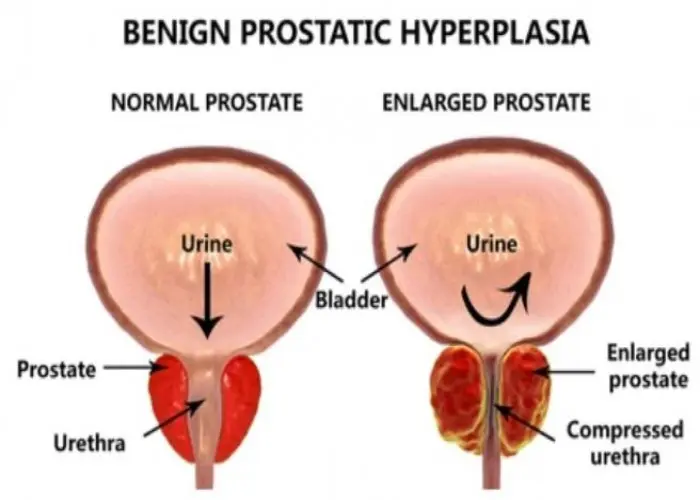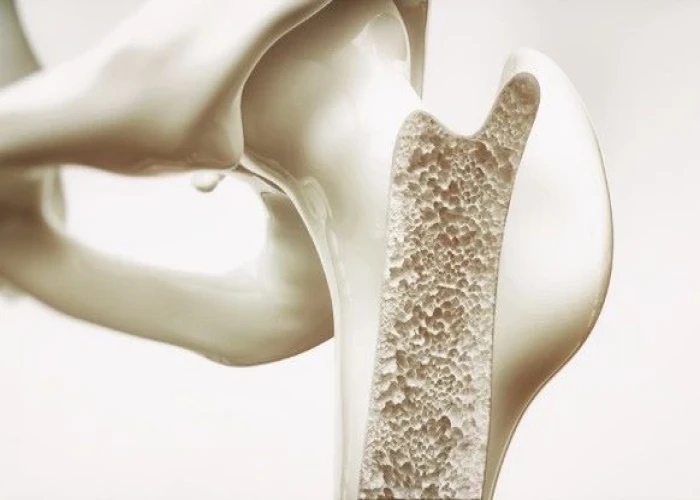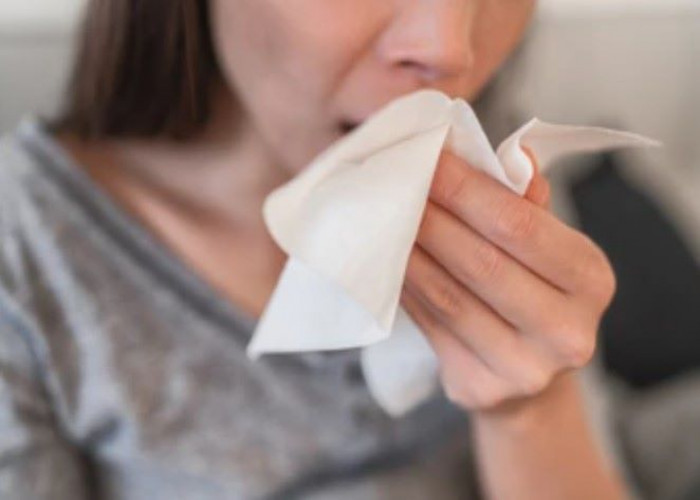 Welcome
Welcome
“May all be happy, may all be healed, may all be at peace and may no one ever suffer."
Common cold

The common cold is a viral infection that affects the upper respiratory system, typically caused by rhinoviruses. It is characterized by symptoms such as a runny or stuffy nose, sore throat, cough, headache, and mild body aches. It is usually self-limiting and resolves within 7-10 days without specific treatment, but over-the-counter medications can help alleviate symptoms. Preventive measures such as frequent hand washing and avoiding close contact with infected individuals can reduce the risk of contracting the common cold.
Research Papers
Disease Signs and Symptoms
- Runny nose
- Shortness of breath (dyspnea)
- Fever and chills
- Fever
- Frequent sneezing
- Headaches
- Nasal blockage or congestion, causing difficulty breathing through your nose
- Cough
- Sore throat
- Ear pain
Disease Causes
Common cold
Although many types of viruses can cause a common cold, rhinoviruses are the most common cause.
A cold virus enters your body through your mouth, eyes or nose. The virus can spread through droplets in the air when someone who is sick coughs, sneezes or talks.
It also spreads by hand-to-hand contact with someone who has a cold or by sharing contaminated objects, such as eating utensils, towels, toys or telephones. If you touch your eyes, nose or mouth after such contact, you're likely to catch a cold.
Disease Prevents
Common cold
There's no vaccine for the common cold, but you can take commonsense precautions to slow the spread of cold viruses:
- Wash your hands. Wash your hands thoroughly and often with soap and water for at least 20 seconds. If soap and water aren't available, use an alcohol-based hand sanitizer that contains at least 60% alcohol. Teach your children the importance of hand-washing. Avoid touching your eyes, nose or mouth with unwashed hands.
- Disinfect your stuff. Clean and disinfect high-touch surfaces, such as doorknobs, light switches, electronics, and kitchen and bathroom countertops daily. This is especially important when someone in your family has a cold. Wash children's toys periodically.
- Cover your cough. Sneeze and cough into tissues. Throw away used tissues right away, then wash your hands thoroughly. If you don't have a tissue, sneeze or cough into the bend of your elbow and then wash your hands.
- Don't share. Don't share drinking glasses or eating utensils with other family members. Use your own glass or disposable cups when you or someone else is sick. Label the cup or glass with the name of the person using it.
- Stay away from people with colds. Avoid close contact with anyone who has a cold. Stay out of crowds, when possible. Avoid touching your eyes, nose and mouth.
- Review your child care center's policies. Look for a child care setting with good hygiene practices and clear policies about keeping sick children at home.
- Take care of yourself. Eating well and getting exercise and enough sleep is good for your overall health.
Disease Treatments
There's no cure for the common cold. Most cases of the common cold get better without treatment, usually within a week to 10 days. But a cough may linger for a few more days. The best thing you can do is take care of yourself while your body heals. For example, drink plenty of liquids, humidify the air, use saline nasal rinses and get adequate rest.
Antibiotics are of no use against cold viruses and shouldn't be used unless there's a bacterial infection.
Relieving your symptoms can include using over-the-counter (OTC) medication to reduce fever, body aches, congestion and cough. Some remedies might help ease your symptoms and keep you from feeling so miserable. But there are pros and cons to commonly used cold remedies, such as over-the-counter pain relievers, decongestants, nasal sprays and cough syrups. Don't give OTC cold medications to children.
Pain relievers
For a fever, sore throat and headache, adults often turn to OTC acetaminophen (Tylenol, others) or other mild pain relievers such as ibuprofen (Advil, Motrin IB, others).
For treatment of fever or pain in children, consider giving your child infants' or children's over-the-counter fever and pain medications such as acetaminophen (Tylenol, others) or ibuprofen (Advil, Motrin, others). These are safer alternatives to aspirin.
For children younger than 3 months old, don't give acetaminophen until your baby has been seen by a doctor. Don't give ibuprofen to a child younger than 6 months old or to children who are vomiting constantly or are dehydrated.
Use these medications for the shortest time possible and follow label directions to avoid side effects. Call your doctor if you have questions about the right dose.
Aspirin is not recommended for children or teenagers. Though aspirin is approved for use in children older than age 3, children and teenagers recovering from chickenpox or flu-like symptoms should never take aspirin. This is because aspirin has been linked to Reye's syndrome, a rare but potentially life-threatening condition, in such children.
Decongestant nasal sprays
Adults can use decongestant drops or sprays for up to five days. Prolonged use can cause rebound symptoms. Children younger than 6 years old shouldn't use decongestant drops or sprays. Talk to your doctor before using nasal decongestants in children older than 6 years.
Cough syrups
Over-the-counter cough and cold medicines are intended to treat the symptoms of coughs and colds, not the underlying disease. Research suggests that these medicines haven't been proved to work any better to treat colds than do inactive medicine (placebo).
If you use over-the counter cough and cold medicines, follow the label directions. Don't take two medicines with the same active ingredient, such as an antihistamine, decongestant or pain reliever. Too much of a single ingredient could lead to an accidental overdose.
Don't use over-the-counter medicines, except for fever reducers and pain relievers, to treat coughs and colds in children younger than 6 years old. Cough and cold medications have potentially serious side effects, including fatal overdoses in children younger than 2 years old. Also consider avoiding use of these medicines for children younger than 12 years old. And it isn't typically recommended that you give cough or cold medicines to an older child.
Disease Diagnoses
Disease Allopathic Generics
-
Paracetamol
Medicines containing paracetamol for children for headache, body ache and fever.
1/2, 1, 2 3 times a day.
-
Phenoxymethyl Penicillin [Penicillin V]
Medicines containing phenoxymethyl penicillin if the cold is accompanied by inflammation of the chest or throat or if the patient has a fever.
-
Amoxicillin Trihydrate
250 mg 3 times a day for boys and girls. Adults 500mg 1 time 2/3 times a day.
Syrup 1/2 spoon 3 times a day.
-
Cephradine
Adults 1 250mg 6 hours after 5/7 days or 500mg 1 in the morning 1 evening 5/7 days after 8 hours.
-
Ciprofloxacin
1 to 2 times a day according to age. 1+0+1 makes 14 days.
-
Chloroquine Phosphate
First single dose is 4 pills 6 hours after 2 pills. From next day 1 pill daily 2 times a day for 3 days. In children, the dose should be determined according to the same rules according to age.
-
Promethazine Hydrochloride
For nasal allergies (runny nose) and abnormal accumulation of blood in any part of the body.
1 pill or 1/2, 1, 2 spoons 3 times a day according to age.
-
Pheniramine Maleate
For nasal allergies (runny nose) and abnormal accumulation of blood in any part of the body.
1/2, 1 spoon 3 times a day.
-
Cetirizine Hydrochloride
For nasal allergies (runny nose) and abnormal accumulation of blood in any part of the body.
The usual dose for adults is 1 pill at night. In hard condition 1+0+1 and above 6 years boys and girls 1 pill at night or 1/2+0+1/2, syrup 2-6 years 1 spoon 1 time at night.
-
Loratadine
For nasal allergies (runny nose) and abnormal accumulation of blood in any part of the body.
Adults 1 pill daily at night. 1+0+1 in hard condition. 1/2 pill 1 time a day for 2-12 years or 1/2+0+1/2 in severe cases.
Cannot be given to children under 2 years of age.
-
Desloratadine
For nasal allergies (runny nose) and abnormal accumulation of blood in any part of the body.
1 daily.
-
Ketotifen Fumarate (Oral)
Antihistamines with ketotifen are given to patients who have a cold and have slight chest tightness or shortness of breath.
Adults take 1 tablet 1/2 time a day (1+0+1 in solid state).
Over 2 years, 1 spoon 1/2 time a day.
-
Xylometazoline Hydrochloride
Medicines containing xylometazoline hydrochloride or oxymetazoline for nasal congestion.
Adults 0.1% drops 2/3 drops in both nostrils 2/3 times a day.
Boys-Girls: 0.0% drop 1/2 drop 1/2 time a day.
They are not to be used for a long time.
-
Oxymetazoline Hydrochloride (Nasal Preparation)
Adults 1/2 drop every 8/12 hours in both nostrils, under 6 years 1 drop 8/12 hours every 3/4 days.
-
Ferrous Sulfate
If the patient feels weak after the fever is cured, any medicine like blood thinners and vitamin complex can be given to improve the general health.
1/2 teaspoon daily 3 times a day after meals.
-
Vitamin B complex
If the patient feels weak after the fever is cured, any medicine like blood thinners and vitamin complex can be given to improve the general health.
Consume 1/2 teaspoon 3 times a day after meals. Liquid vitamins are not needed if the food tastes good.
-
Multivitamin & Multimineral
If the patient feels weak after the fever is cured, any medicine like blood thinners and vitamin complex can be given to improve the general health.
1 daily after breakfast.
Disease Ayurvedic Generics
Disease Homeopathic Generics
-
Bryonia alba
6, Shakti 2/3 drops 4 times a day.
-
Belladonna
30 Shakti 2/3 drops 4 times a day.
-
Chamomilla
6, 30 Shakti 2/3 drops 4 times a day.
-
Silicea
30 Shakti 1 drop 4 times a day.
-
Sanguinaria
6 Shakti 2/3 drops 4 times a day.
-
Ipecacuanha
30 Shakti 2 drops 4 times a day.
-
Camphor
6 Shakti 2/3 drops 4 times a day.
-
Dulcamara
6, 30 Shakti 2/3 drops 4 times a day.
-
Belladonna
30 Shakti 2/3 drops 4 times a day.
-
Chamomilla
6, 30 Shakti 2/3 drops 4 times a day.
-
Silicea
30 Shakti 1 drop 4 times a day.
-
Allium cepa
3, 6 strength 2/3 drops every 3 hours.
-
Antimonium tartaricum
6, 30 strength 2/3 drops every 3 hours.
Disease yoga
Common cold and Learn More about Diseases

Anal cancer

Schizophrenia

Benign prostatic hyperplasia (BPH)

Galactorrhea

Histoplasmosis

Wrist pain

Osteoporosis

Obesity
Common cold, Rhinovirus, A cold symptoms, সাধারণ সর্দি
To be happy, beautiful, healthy, wealthy, hale and long-lived stay with DM3S.
